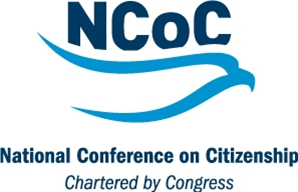Nonprofit Density Impacts Unemployment Rate; CT Misses Top 10
/Communities with better civic health have weathered the recent recession far better – and experienced considerably smaller increases in unemployment – than other communities that faced similar economic circumstances, according to a report by the National Conference on Citizenship (NCoC). Counties across the nation that were rich in nonprofit organizations lost considerably fewer jobs than the low-nonprofit counties, the study revealed. A state-by-state analysis by the organization placed Connecticut in the second tier of states in both the density of nonprofit organizations, and social cohesion (interacting with friends and neighbors), the two measures used in the study, released in 2012. Connecticut ranked between #11 and #20 in each category, just outside the first tier, top-10 states.
For individuals who held jobs in 2008, the odds of becoming unemployed were cut in half if they lived in a community with many nonprofit organizations rather than one with a few nonprofits, even if the two communities were otherwise similar, the study found. Among the New England states, Maine, Rhode Island and Vermont placed in the top ten.
study found. Among the New England states, Maine, Rhode Island and Vermont placed in the top ten.
Overall, counties with more nonprofits per capita prior to the recession had lower unemployment in 2006. And while almost all of the counties lost jobs during the recession years, the counties with more nonprofits per capita lost fewer jobs between 2006 and 2009. Both patterns remain even when holding education, median income, housing prices, and other economic factors constant, according to the report. Counties ranking in the top 10% in nonprofit density experienced an increase of only 2 percentage points in their unemployment rate between 2006 and 2009, compared with 5.1 percentage points for the counties in the bottom 10% in nonprofit density.
These results suggest – according to the report – that nonprofits may bring economic benefits by directly employing people and also by changing the economic climate of the whole community. Nonprofits support civic engagement and social cohesion; in turn, when citizens feel committed to their communities and connected to their fellow residents, they are more likely to make decisions that boost local employment.
The study used statistical models to investigate the relationship between civic health and unemployment in the 50 states, 942 metro areas, and more than 3,100 counties since 2006. NCoC was chartered by Congress in 1953 to harness the patriotic energy and national civic involvement surrounding World War II. In 2009, Congress expanded the organization’s Civic Health Assessment to become the nation’s largest and most definitive measure of civic engagement.
1953 to harness the patriotic energy and national civic involvement surrounding World War II. In 2009, Congress expanded the organization’s Civic Health Assessment to become the nation’s largest and most definitive measure of civic engagement.






























